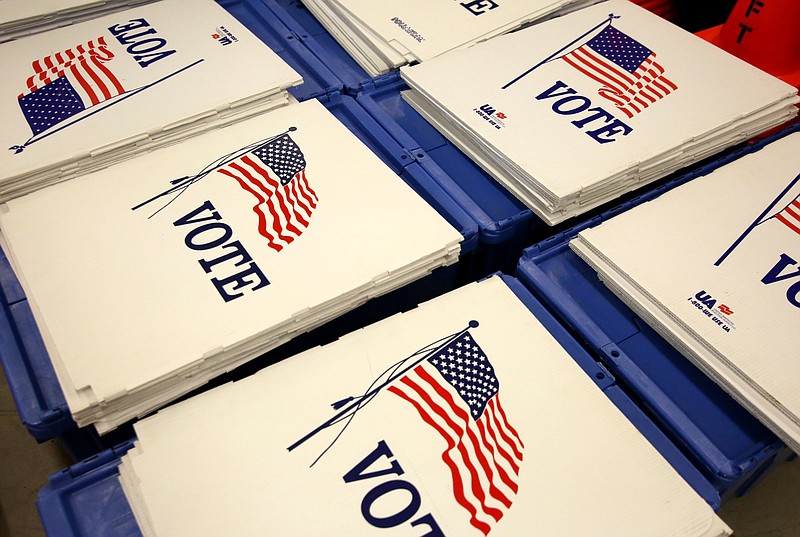NASHVILLE - A legislative push to make it easier for many of Tennessee's former felony offenders to restore their voting rights once their sentences are complete picked up key support Thursday from the two top Republicans in the GOP-run House.
House Majority Leader William Lamberth, a Portland Republican and former assistant prosecutor, told reporters he has worked on the issue with the House bill's sponsor, Rep. Michael Curcio, R-Dickson.
"We want to streamline the system and make sure that there's not a fine or a fee or simply an obstacle like paperwork or bureaucracy that would stop somebody from regaining their voting rights," Lamberth told reporters. "And that's something that all of us support."
The goal, Lamberth said, is "to make sure that anybody that's eligible to vote is able to get out there and register to vote and actually enjoy the free process that we have for elections."
House Speaker Glen Casada, R-Franklin, said he is supportive of the bill, too.
"I will be," Casada said. "And I tell you, the majority leader here, the caucus chairman, they're putting together good public policy. There's a reason why Tennessee is voted one of the best run states in the union, and it's a leadership that our caucus has put forward.
The bill, co-sponsored by Sen. Steve Dickerson, R-Nashville, in the upper chamber, is part of a push by a coalition of groups, including an unusual pairing of the Tennessee chapters of the conservative Americans for Prosperity and the liberal American Civil Liberties Union.
Current law already permits restoration of voting rights for most ex-offenders. But critics say those who've completed prison time as well as probation or parole still face Tennessee's daunting snarl of red tape and requirements not found in most other states.
The legislation would not include all ex-offenders and would maintain the current exclusion of persons convicted in cases such as first-degree murder and child-sex crimes.
Proponents say restoring voting rights can provide a sense of pride for ex-offenders re-entering society, helping them remain rooted. They say a rights restoration law in Florida is associated with a 12.8 percent reduction in recidivism.
Various groups involved also say Tennessee has some of the nation's harshest rights restoration policies due to a number of laws and policies. As a result, Tennessee has a higher rate of people barred from voting than 47 other states. One in 12 voting-age Tennesseans are barred from voting based on a past felony conviction.
Among other things, ex-convicts who've completed their prison time as well as probation or parole, must deal with up to a dozen entities ranging from local courts on up to the secretary of state's office to regain their ability to vote.
State laws also require they be current on all court-ordered child-support obligations before seeking to have their voting rights restored. Tennessee is the only state to do so. Those completing their sentences also have to have dealt with various court fees and fines before seeking to get their voting rights back.
A study by Think Tennessee, a nonpartisan state-based think tank, says only 11,581 people managed to get their voting rights restored between 1990 and 2015. That compares to 323,354 Tennesseans who had completed their sentences as of 2016.
The coalition wants to streamline the process to help ex-offenders win their voting rights back. That includes eliminating the requirement to have paid off all past child-support obligations and court-associated fees and fines. Money will still be owed, but failure to pay won't be a barrier to voter registration.
Senate Democratic Caucus Chair Raumesh Akbari of Memphis, an attorney, said she's looked at the Republican bill and believes "it encompasses a lot of the legislation Democrats have filed. I do feel we have common ground. It is smartly written and I think it will help really move forward our ex-offender population and streamline the process."
Still, not everyone is totally convinced. Lt. Gov. Randy McNally, R-Oak Ridge, the Senate speaker, said he'd like to ensure there's "some payment plan for the fines and court costs with the individual. And it would also depend on what felonies. I'm sure they would have exempted all A and B felonies and all child-sex crimes."
He said there "should be some mechanism as to how they're going to pay those fines."
Contact Andy Sher at asher@timesfreepress.com or 615-255-0550. Follow him on Twitter @AndySher1.
